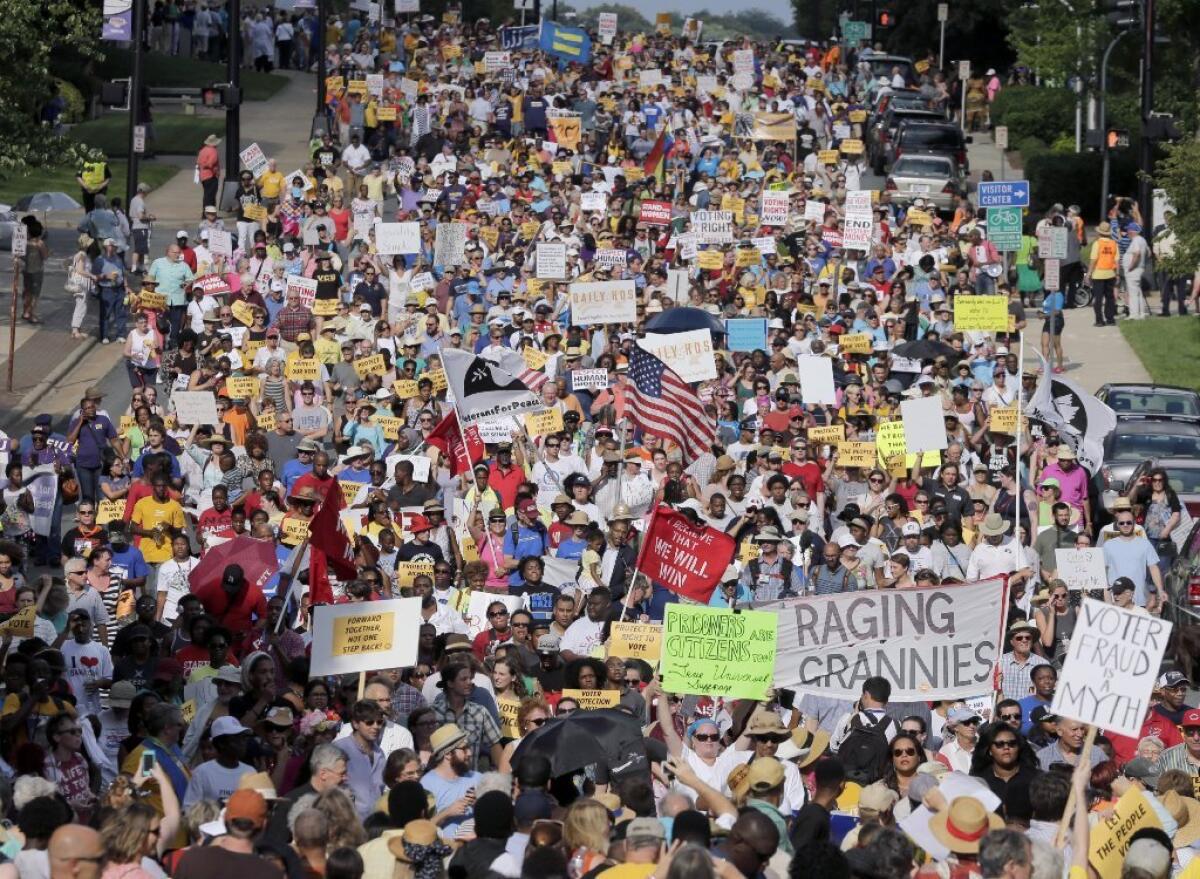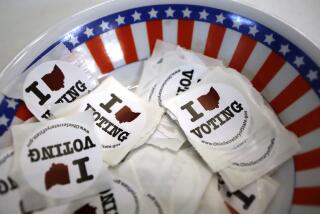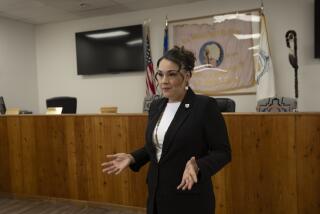Opinion: Does a voting-rights case threaten experimentation?

Demonstrators march through the streets of Winston-Salem, N.C., on July 13 after the beginning of a federal voting-rights trial.
Suppose a state adopts a traditional approach to voting – only one day on which voters can cast their ballots at polling places, with limited opportunities for absentee voting.
Yet legislators in this state are intrigued by innovations in other states, such as Oregon’s system of voting by mail or Sunday voting, which allows churches to organize “souls to the polls” programs that shepherd parishioners directly from services to a polling place.
If this hypothetical state adopts such alternative methods but then finds them unduly expensive or susceptible to fraud, can it repeal them? On first blush, the answer seems obvious: What the legislature can do it can undo.
But what if there is evidence that voting by mail or Sunday voting results in a higher turnout of racial minorities? Would doing away with those methods violate the federal Voting Rights Act?
That question is inspired by a recent trial in federal court over a challenge to changes in election rules in North Carolina. (A fascinating column on the case by UC Irvine law professor Richard L. Hasen can be found here.)
After the Supreme Court in 2013 struck down the formula by which some states (mostly in the South) had to preclear changes in election rules with the U.S. Department of Justice or a federal court, North Carolina tightened photo ID requirements and restricted early voting and same-day registration. The state also eliminated a program that allowed 16- and 17-year-olds to preregister so they would be automatically registered to vote at 18.
In challenging the changes, the plaintiffs – joined by the U.S. Justice Department – argued that they were designed to dilute the power of blacks and Latinos in the Republican-controlled state. Lawyers for the state countered that African American turnout actually increased under the new rules.
The North Carolina case raises several legal questions, including whether changes designed to reduce Democratic turnout should be viewed as attacks on the voting rights of racial minorities that disproportionately support Democrats. (The Justice Department argued that the racially discriminatory effects of the changes were “neither accidental nor unforeseen.”)
But one question is not legal but political: whether a state might decline to experiment with innovative approaches to voting out of a fear that it might be locked in to those methods for perpetuity.
Suppose, for example, a state decided to allow for voting on the Internet, but then had second thoughts because of a hacking scandal. Repealing the program might not be so easy if experts concluded that racial minorities were more likely to vote by Internet than by paper ballot.
In defending North Carolina’s law, a lawyer for the state argued that it was simply replicating conditions found in other states. New York, he pointed out, lacks early voting.
The interesting question is whether a victory for the plaintiffs in North Carolina will make legislators in New York and other states less likely to start down a road they might be unable to turn back from. That would be a strange “victory” for more convenient voting.
Follow Michael McGough on Twitter @MichaelMcGough3
More to Read
A cure for the common opinion
Get thought-provoking perspectives with our weekly newsletter.
You may occasionally receive promotional content from the Los Angeles Times.











